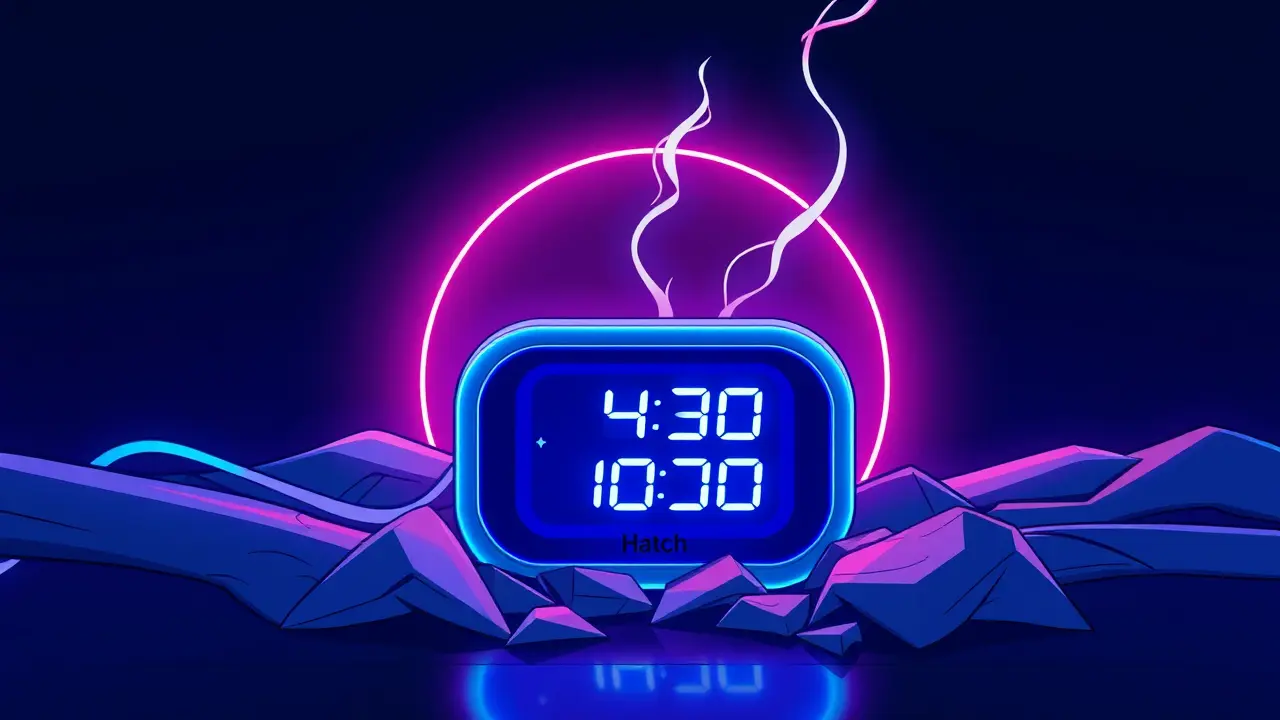
Hottest
Entertainmentculture & trendsInfluencers
Christian Influencers Are Throwing Their Hatch Clocks in the Trash (2025)
LI
Lily Harper
2 days ago7 min read
The digital pews are in an uproar, darlings, and this scandal is more dramatic than a last-minute plot twist in a reality show finale. Christian influencers, those meticulously curated pillars of faith-based content, are staging a mass exodus from the Hatch sleep ecosystem, and their trash cans are becoming the unlikely altars of protest.The catalyst? A horror-themed Halloween campaign from the beloved sunrise alarm clock company that has somehow managed to offend the devout more than a caffeine shortage at a megachurch conference. This isn't just about a few spooky ads; it's a full-blown identity crisis playing out in Instagram Stories and TikTok sermons, a clash between aesthetic wellness and spiritual purity that has everyone from gentle homemakers to fiery evangelical leaders weighing in.Picture the scene: the same 'Restore' clocks that once gently illuminated morning devotionals with a soft, heavenly glow are now being unplugged with a righteous fury usually reserved for exposed midriffs on the red carpet. The controversy ignited when Hatch, in a bold pivot seemingly orchestrated by a marketing team that clearly never attended a Sunday school picnic, launched a suite of Halloween programs featuring names like 'Haunted Mansion' and 'Zombie Apocalypse,' complete with soundscapes of creaking floorboards and distant screams.For a community that often views Halloween as a celebration of the demonic, this was not the cozy, pumpkin-spice content they expected from their go-to source for serene wake-up calls. The backlash was instantaneous and spectacularly public.A-listers in the faith sphere, who had previously featured their pearlescent Hatch clocks in countless 'Sacred Morning Routine' videos, began posting cinematic clips of themselves tossing the devices into garbage bins, set to soaring worship music. Captions have evolved from simple disappointment to full-throated declarations of spiritual warfare, accusing the brand of betraying its core audience for a cheap thrill and aligning itself with the very darkness their products were meant to help them overcome.The comment sections have become a digital coliseum, with one side decrying the performative piety and the other applauding the principled stand. Behind the social media firestorm lies a deeper, more fascinating narrative about the precarious business of building a brand at the intersection of faith and lifestyle.Hatch, much like many modern companies, cultivated an almost pastoral relationship with its customers, becoming a silent partner in their daily rituals of prayer, meditation, and family life. This breach of trust isn't merely a marketing misstep; it's a perceived violation of a sacred covenant.The company's attempt to broaden its appeal by tapping into the secular, and immensely profitable, Halloween season has backfired spectacularly, revealing the fragile nature of its brand identity. Industry analysts are watching with bated breath, noting that the financial fallout could be significant, as the Christian consumer market represents a powerful and loyal economic bloc.Meanwhile, other wellness brands are surely taking notes, realizing that in the age of influencer-led commerce, your most beloved ambassadors can become your most formidable critics overnight. This saga has all the hallmarks of a modern morality play—loyalty, betrayal, and the very public performance of values. It’s a stark reminder that in today's market, a brand is not just what it sells, but the congregation it builds, and right now, Hatch is witnessing a very loud, very visible schism.
#hottest news
#Christian influencers
#Hatch alarm clocks
#controversy
#Halloween ads
#consumer boycott
#social media backlash
Stay Informed. Act Smarter.
Get weekly highlights, major headlines, and expert insights — then put your knowledge to work in our live prediction markets.
Comments
It’s quiet here...Start the conversation by leaving the first comment.
© 2025 Outpoll Service LTD. All rights reserved.